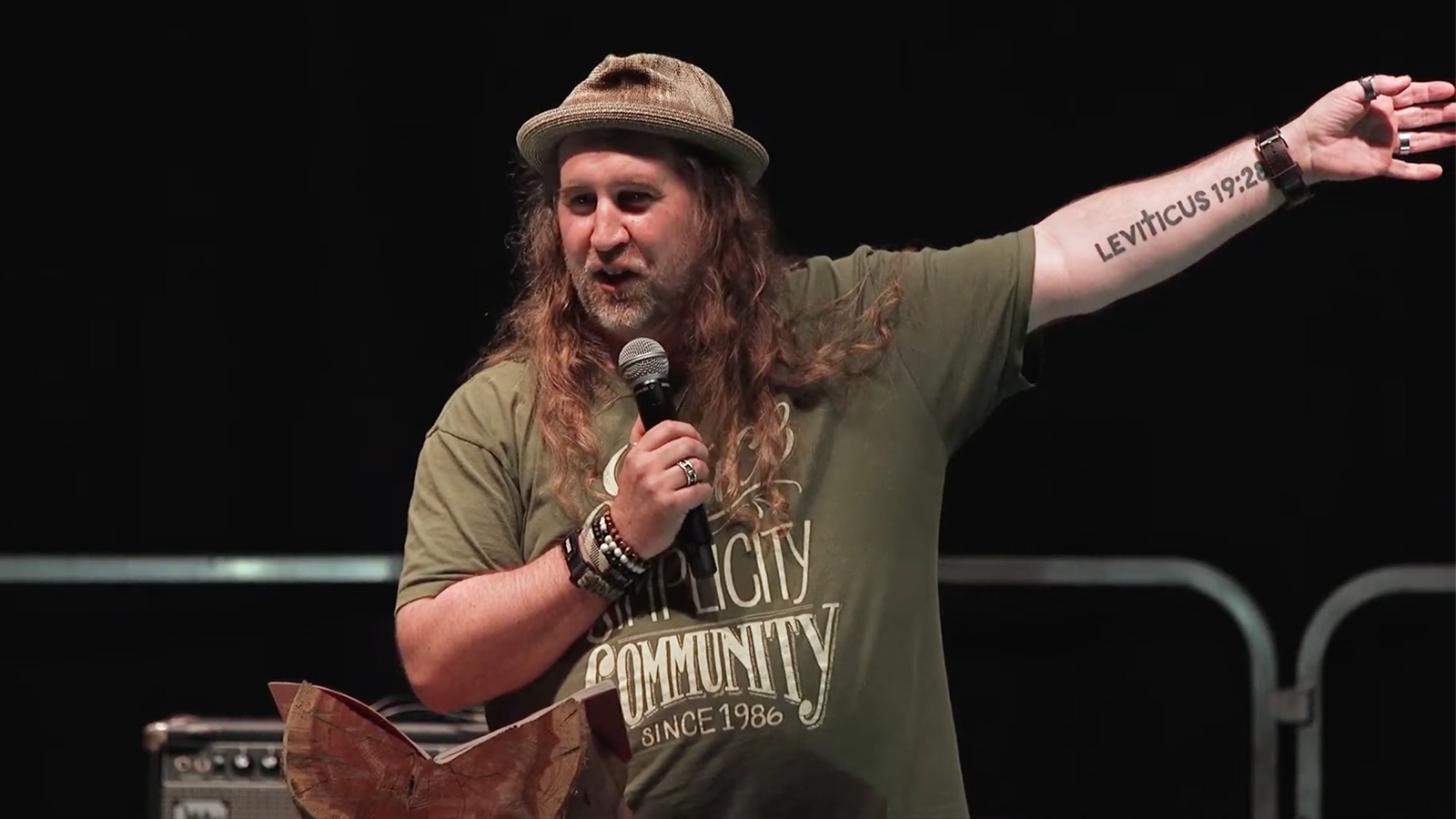
(RNS) — When I was interviewing megachurch pastor Bruxy Cavey for my dissertation on charisma and leadership a decade ago, I had no clue that he was involved in a sexual relationship that would come to be called, in an outside investigators’ report, “an abuse of Bruxy’s power and authority as a member of the clergy.” His thousands of followers at The Meeting House near Toronto, Ontario, would have had a hard time ever imagining such scandal.
Understand that Cavey is not like many megachurch pastors. He does not shield himself from the crowds; he often stood in the hallway between his multiple morning services to answer questions from attendees. Some of my colleagues studying megachurch pastors couldn’t get within a mile of their subject. Cavey had me over for a beer at his modest suburban home and answered all my questions.
Long hair, T-shirts and jeans with accompanying beaded necklaces and bracelets — Cavey doesn’t look like the stereotype of the clean-cut, stylish megachurch pastor. He made frequent allusions to grungy, peace-loving hippies. While he was gregarious, sharp-witted and confident on stage, in person he was shy, soft-spoken and passive. He waited for me to ask the questions and he dutifully answered. He was always gracious and patient, with an ironic sense of humor.
This was his theological vision: that the gospel of Jesus Christ is a call to shut down religion and enter into authentic, loving relationship with God and others. True to his Anabaptist commitments, he preached pacifism, simplicity and generosity as “the Jesus Way.” He consciously built his image as a foil of brash, angry, right-wing masculinist evangelical leaders, calling himself a beta male. He championed team leadership and egalitarian gender roles and emphasized the ultimate rule of his board. He was, in hindsight, deconstructing evangelicalism for many urban cultural creatives around Toronto.
RELATED: Bruxy Cavey’s former megachurch debates allegations: Sex abuse or an affair?
I was told by numerous people that Cavey was often quiet and even seemed disinterested during the board meetings. Sometimes absentminded, he was content to let others make decisions and delegated leadership freely. Sunday mornings, they told me, they phoned him to be sure he was awake and ready to preach.
I sat with him in a café one winter afternoon, and I asked him, “What motivates you to get up on Sunday mornings and teach three more services?”

Pastor Bruxy Cavey. Video screen grab
“If I don’t show up, that is not nice,” he replied. “People are counting on me to communicate the message and there is a team of volunteers scrambling to do what needs to be done. If I don’t show up, I’m failing my teammates as well as the people we’re all trying to deliver the message to.”
This sounded like a divine calling coupled with a fear of disappointing people. He didn’t want to let people down. If this is true, then as he has confessed, his decision to abuse his pastoral authority in this case of alleged sexual misconduct is his “greatest failure and darkest sin.” He admitted that he has “broken the bonds of trust” with his family, the victim and his church followers.
His multitudes of attendees, many of whom would identify as spiritual refugees desperately looking for a more loving and gracious spiritual home, looked to him as the best hope they had for Christian teaching that could heal the wounds inflicted by the institutional church.
“He has now undone so much good that was previously done and given us another reason not to trust those in positions of power,” one longtime Meeting House attendee wrote to me recently. “It’s heartbreaking … but maybe it’s partly on us for putting him so high up on a pedestal.”

Bruxy Cavey in a 2021 video. Video screen grab
Testimonies of Cavey’s best moments are surfacing on the internet from his many supporters. There is hope for forgiveness after justice has taken its course. Many others champion the courageous victim who broke the silence, and follow former Meeting House pastor Danielle Strickland’s statement from the victim, demanding that the church describe the relationship not as an extramarital affair, but as “clergy sexual abuse.”
“Why was he counseling anyone?” asked another, wondering about his job description and qualifications for such.
Most seem to acknowledge the gravity of the damage. Cavey has broken the promise he gave to be the “irreligious” pastor, the quirky Canadian urban Mennonite exception. With his illicit relationship, he has sabotaged his own project of deconstruction. He often jokingly said of himself, “I have the face of Jesus and the body of the Buddha.” He was self-deprecatingly referring to his rotund shape, but in retrospect, claiming a divine likeness has a double edge, and he seems to have fallen on the wrong side of it.
He was not Jesus. Neither is he a demon. But with his fall, the age of Big Evangelicalism has taken another damaging blow. Its credibility sinks further as disillusionment with its big, bold and brash spirituality grows.
Cavey promised to be the alternative to megachurch power politics, prosperity and patriarchy. But this identity floated on the same megachurch marketing, management and metrics that buoys any other megachurch pastor. He had a different style, but he relied on the same multisite networks, electronic media, centralized leadership and branding consistency. The Meeting House was deconstructing the evangelical megachurch brand, but it was still a megachurch. Cavey did not deconstruct far enough.

Pastor Bruxy Cavey in 2019. Viedeo screen grab
Cavey often said that self-preservation in institutional life was “religion.”
“Part of the life of any structure is being able to embrace their own demise,” he explained in a sermon in June 2007. “That’s what it means to follow Jesus. … One of the saddest things on the planet today are the time and energy that people invest in churches and denominations that have long outlived their usefulness. … Shut it down.”
Whether The Meeting House and its 19 remote sites, which are supported by the Be In Christ denomination, can recover, or at least retain, some of its former ministry will take years to assess. I suspect some of the spiritual vision and posture of the culturally savvy, irreligious teachings promoted by Cavey will remain, although chastened and rather subdued by this humiliation.
(Peter J. Schuurman is executive director of Global Scholars Canada and an adjunct faculty member at Redeemer University. He is the author of “The Subversive Evangelical: The Ironic Charisma of an Irreligious Megachurch.” The views expressed in this commentary do not necessarily reflect those of Religion News Service.)
This story has been updated.
